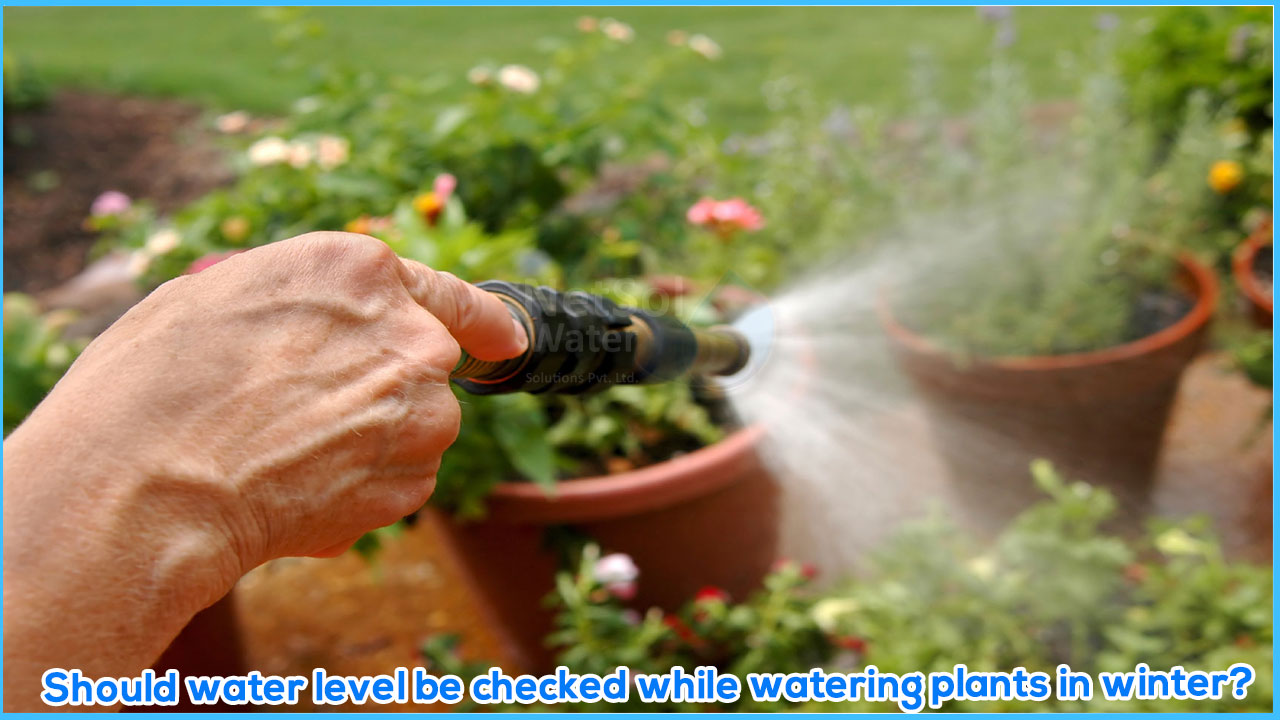Gardening is a popular pastime for many people. They turn their balcony or little yard into a miniature garden with a few carefully chosen plants. However, some people take gardening very seriously and with a lot of enthusiasm. Serious gardeners are those who pay attention to every detail that can improve the quality of their plants. Water is one of the most important and basic requirements for a plant's growth. Many gardeners nowadays are taking advantage of the opportunity to use RO (reverse osmosis filtered) water for their plants.
WATER IS EQUALLY IMPORTANT FOR PLANTS AS MUCH AS FOR HUMANS
Plant water consumption changes with the season, just like human water consumption. In winter, plants require less water than in the summer. While it's true that winter air is dryer, plants develop at a slower rate and some even go dormant during the colder months. Plants require less water to be hydrated as a result, and overwatering can cause root rot.
Growers will now utilise a different type of stimulator and external agents to boost the plant's growth. Now that you're paying attention to so many details and investing time, money, and passion into your plants, you need to know what kind of water to use. If you water your plants with clean, filtered water, you'll notice that the minerals and nutrients you apply are working to their full potential.
REVERSE OSMOSIS
The reverse osmosis method is a result of organic chemistry. To put it another way, reverse osmosis is a type of water filtration that uses a combination of chemical expertise and technology to rid the water of all sediments, bacteria, and other contaminants. Whether the particles are dissolved or suspended, the RO procedure can eliminate them. It is made up of semi-permeable membranes that filters water to remove all types of smaller and larger particles. Filtration of sediments, carbon filtering, and membrane extraction are the three stages of the procedure.
IS RO WATER GOOD FOR PLANTS IN WINTERS?
Reverse osmosis (R/O) is a method for removing minerals and pollutants from water, such as chloramine, salts, and heavy metals. This is safe to feed to plants, and some people prefer it because it lacks particular minerals that can create fertiliser problems. The disadvantage is that the water is devoid of all nutrients, thus you must use a well-balanced fertiliser.
BENEFITS OF USING RO WATER FOR PLANTS IN WINTERS
Purified water from reverse osmosis is a huge help to your plants, especially if you're serious about growing healthy plants and having a productive garden. When you use RO water, you will notice a variety of advantages.
-With multi-stage filtration, RO water is properly cleansed. The plants are prone to a variety of fungal and bacterial infections. These are obtained by many plants from contaminated water. You won't have to worry about obtaining these problems from the water if you use RO purification.
-Hard water, or water with a higher molecular content of magnesium and calcium carbonates, has a negative impact on plants in many circumstances. In the carbon filtering procedure, reverse osmosis water breaks down carbonates and sets water free with membrane cleansing.
-The presence of significant salts in typical tap water used for planting is detrimental to plant growth. They can harm the plant's roots and internal channels, which are directly involved in the absorption of water and nutrients. It is easier to eliminate sediments and salts in water with RO solution, which can benefit the plant.
-The presence of increased levels of Magnesium and Calcium carbonates and bicarbonates can substantially alter the pH equilibrium of soil. When you utilise hard water for your plants, you're allowing room for a pH imbalance to develop. That's why you'll need RO water that's been cleaned and has a lower alkaline content to keep the pH balanced.
CONCLUSION
There are water filtration systems, such as the NETSOL RO SYSTEM, that can eliminate up to 99% of chlorine, preventing problems and ensuring water purity. If your water is particularly hard and has a high EC, NETSOL RO systems can remove up to 95% of salts and heavy metals, as well as up to 99% of chlorine. You will be able to provide your plants with the nutrients they require, and they will grow healthier as a result.
So, if you're looking for the greatest water quality for gardening in the winter, consider using filtration systems or RO to assist you achieve the best outcomes.




